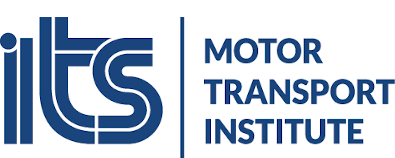MTI responsible for CCAM tests
On June 23 and 24, 2022, Deputy Minister of Infrastructure Rafał Weber took part in a meeting of transport ministers of the Visegrad Group countries (V4). The meeting in Budapest was organized by the Hungarian presidency of the V4, which ends on June 30, 2022. The Hungarian Deputy Minister of Innovation and Industry Dávid Vitézy, the Deputy Minister of Transport and Construction of Slovakia Jaroslav Kmet and the Deputy Minister of Transport of the Czech Republic Václav Bernard were also present.
The key topics of the talks were mutual relations of the V4 countries in the field of, among the others, ongoing revision of the TEN-T guidelines and the construction of high-speed rail (HSR) connections. Much attention was devoted to joint actions that the V4 countries may undertake and the challenges facing transport as a consequence of Russia's armed aggression on Ukraine.
One of the items on the agenda was the session on the review of the Trans-European Transport Network (TEN-T) guidelines and the project to build high-speed rail connections. The aim of developing the network is to coordinate and ensure the coherence and complementarity of infrastructure investments in EU countries, as well as to facilitate the free movement of people and goods.
Finally, the deputy ministers for transport of Poland, Hungary, the Czech Republic and Slovakia signed a Memorandum on the development and testing of Cooperative, Connected and Automated Mobility (CCAM).
The signatories of the Memorandum acknowledged that digitization is a key element of future mobility systems that must be safe, effective and environmentally friendly, as well as socially sustainable. Technological advances in Collaborative, Connected and Automated Mobility (CCAM) offer enormous potential to help meet the challenges faced by mobility systems, such as significant traffic growth, security and availability needs, changing mobility requirements or rising pollution emissions from the transport sector.
One of the institutions designated in the Memorandum - in the field of environmental research and tests for CCAM - is the Motor Transport Institute (MTI), which has many years of international experience supported by special competences in the areas of: automatic and connected vehicles, intelligent transport systems, road safety, transport psychology and vehicle type-approvals.
MTI research on CCAM is conducted at the Competence Centre for Autonomous and Connected Vehicles (CK: PAP). The overriding objective of the Centre is to provide expert support to the government administration in the efficient and safe implementation of vehicle autonomy technologies in Poland, evaluation of these technologies based on the best international practices, at various levels of readiness according to the SAE scale, as well as monitoring and initiating national research areas in the field of autonomous road transport.


